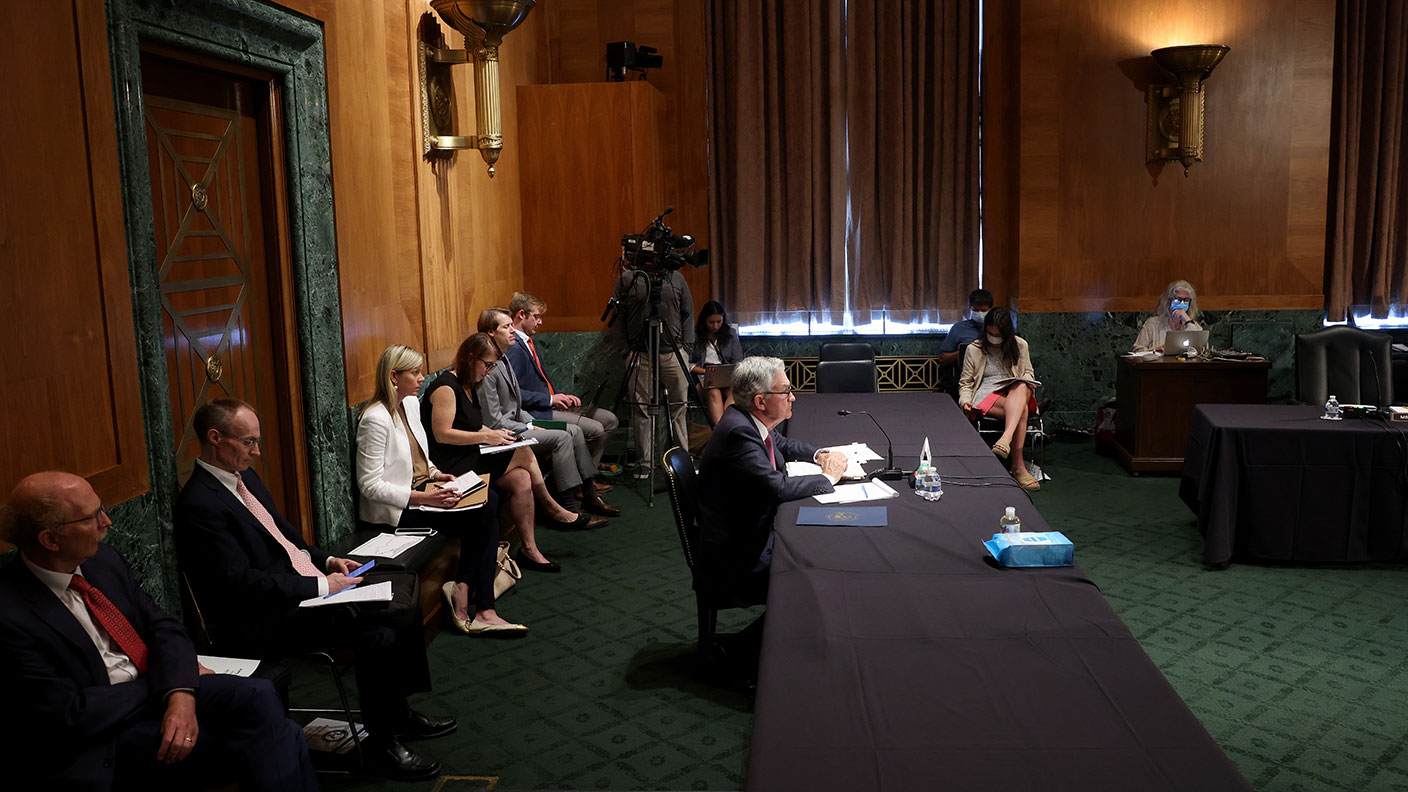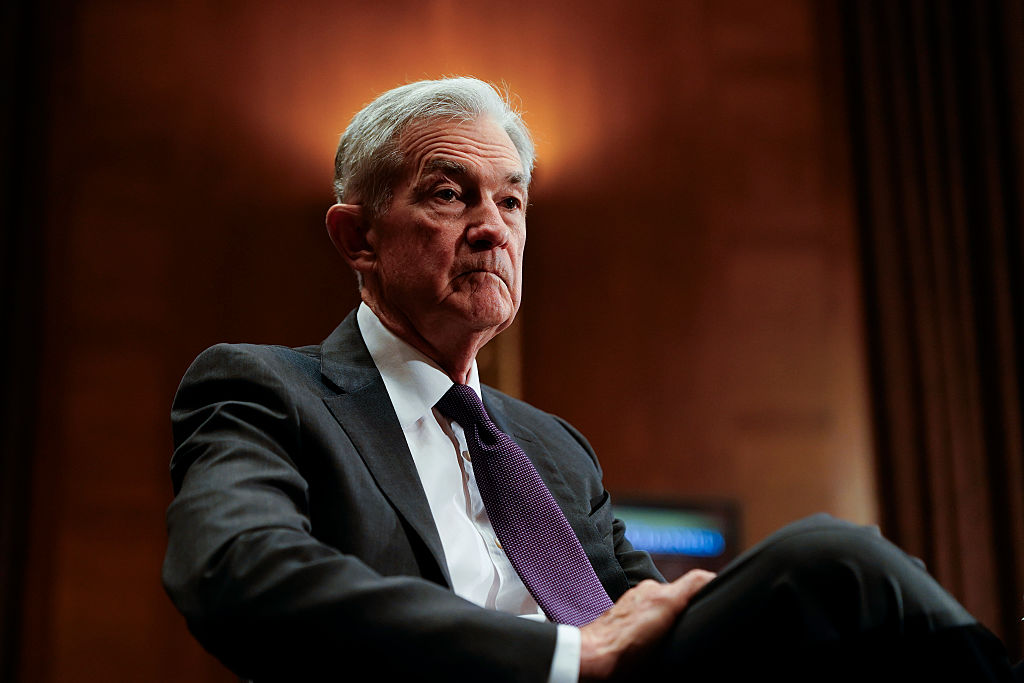The US jobs market is booming – but what does that mean for markets?
The US economy added almost one million jobs in July. John Stepek explains what the spectacular report means for markets and the future of US monetary policy.


Get the latest financial news, insights and expert analysis from our award-winning MoneyWeek team, to help you understand what really matters when it comes to your finances.
You are now subscribed
Your newsletter sign-up was successful
Want to add more newsletters?

Twice daily
MoneyWeek
Get the latest financial news, insights and expert analysis from our award-winning MoneyWeek team, to help you understand what really matters when it comes to your finances.

Four times a week
Look After My Bills
Sign up to our free money-saving newsletter, filled with the latest news and expert advice to help you find the best tips and deals for managing your bills. Start saving today!
On Friday, we got the latest news on the state of the US jobs market.
It was, to use the technical term, a "blowout" report. For those of us still fighting a vain rearguard action against the Americanisation of the language, that means it was very good indeed.
That's good news for the economy. But what does it mean for markets?
MoneyWeek
Subscribe to MoneyWeek today and get your first six magazine issues absolutely FREE

Sign up to Money Morning
Don't miss the latest investment and personal finances news, market analysis, plus money-saving tips with our free twice-daily newsletter
Don't miss the latest investment and personal finances news, market analysis, plus money-saving tips with our free twice-daily newsletter
Strong employment is good for the economy – but it might scare markets
On Friday, we learned that in July, US employers took on nearly one million people. In all, 943,000 jobs were added to payrolls. That was comfortably above the median economist estimate of around 870,000, and the largest gain since August last year.
There were also upward revisions to the figures for both June and May, with a total of 119,000 more jobs added than previously estimated. (Note that this is a valuable reminder that this data is very prone to being revised, even though traders act as though it is gospel truth on the day of its release).
Meanwhile, the unemployment rate dropped to 5.4%. That's the lowest it's been during the pandemic period, and it was down from 5.9% in June.
On top of all that, hourly wages were up by 0.4% in July for the second month in a row. For context, that means wages are now rising at an annual rate of 4%. That's a big leap, and according to Andrew Hunter of Capital Economics, it means US wages are now rising at the fastest rate in 14 years, even if you adjust for Covid-related disruption.
In short, everything in this report points to an ongoing strong recovery with sustained inflationary pressure thrown in for good measure.
This is good news from an economic point of view. A strong recovery is what we need after the big shock of Covid, and from a longer-term perspective, the profit pendulum could do with swinging in labour's direction having spent a long time favouring capital.
But if you're an investor, there's a more immediate question. What does it mean for monetary policy?
The Federal Reserve has been at pains to emphasise that the signs of a strong economic recovery so far don't necessarily spell an imminent end to bond buying (the dreaded "taper"), let alone higher interest rates. The Fed has been keen to see "substantial" progress towards "full employment".
Some (including me) argue that this is also something of a fig leaf for the Fed to hide behind. Ultimately, the world's central banks wouldn't mind too much if inflation ran a bit "hot" for a prolonged period. That would help to deal with the massive debts that have been taken on to pay for all the measures that were designed to cushion the impact of Covid-19.
How does that work? Let's say the national debt is costing a government 2% a year. If GDP grows at 3% a year, it's easy to keep repaying the interest on that. But the beauty here is that it doesn't matter if it's "real" growth or just inflation - the debt gets repaid in "nominal" terms, not inflation-adjusted terms. So if inflation stays higher than interest rates, creditors get repaid in devalued dollars and the whole thing can be cleared much more easily.
That's financial repression at its finest.
However, a very strong jobs report like this makes it much harder for the Fed to justify sitting on its hands. It implies that loose monetary policy might get tighter more quickly than markets had hoped.
The market reaction tells us all we need to know
From that perspective, it was very clear from the market reaction just what investors fear this means for interest rates.
Gold dropped hard. The yellow metal had spent the last few weeks or more dithering around the $1,790 to $1,830 range. It plunged right through the bottom of that range towards the $1,765 mark. Gold doesn't like the prospect of higher interest rates (although if inflation rises more rapidly than rates do, gold will be just fine, which is why I'm still happy to hang onto it for now).
Meanwhile, longer-term US government bond yields headed higher, implying higher interest rate expectations. The US dollar rose too. (A country's currency becomes more appealing if rates look likely to rise due to a stronger economy).
So what's likely to happen? To be fair, the market has been expecting some sort of "tapering" announcement to happen in September's Fed meeting. The main change is that this now seems "very likely" rather than just "quite likely".
The next big event to watch is the annual central banker shindig at the US resort of Jackson Hole. That happens towards the end of this month between August 26th and 28th.
US Fed boss Jerome Powell will give us his view of things. In light of this report, I'd expect him to be keen to calm the market down and make sure it knows the Fed will be advancing slowly but surely.
I still expect the Fed to remain "behind the curve" - in other words, prone to letting inflation rise more rapidly than interest rates (or rate expectations). But we'll see what happens.
It's also worth remembering that if we're genuinely in boom conditions, it's hard to see that being bad for equities. At least in the short run - although there is a point at which inflation starts hurting equity returns and it's quite possible that we'll get there sooner than expected.
If you want to know more on that – and about how to prepare your portfolio for more inflationary days – I covered the topic in the current issue of MoneyWeek magazine, out now. You can get your first six issues free if you subscribe right now.
Get the latest financial news, insights and expert analysis from our award-winning MoneyWeek team, to help you understand what really matters when it comes to your finances.

-
 Can mining stocks deliver golden gains?
Can mining stocks deliver golden gains?With gold and silver prices having outperformed the stock markets last year, mining stocks can be an effective, if volatile, means of gaining exposure
-
 8 ways the ‘sandwich generation’ can protect wealth
8 ways the ‘sandwich generation’ can protect wealthPeople squeezed between caring for ageing parents and adult children or younger grandchildren – known as the ‘sandwich generation’ – are at risk of neglecting their own financial planning. Here’s how to protect yourself and your loved ones’ wealth.
-
 How a dovish Federal Reserve could affect you
How a dovish Federal Reserve could affect youTrump’s pick for the US Federal Reserve is not so much of a yes-man as his rival, but interest rates will still come down quickly, says Cris Sholto Heaton
-
 New Federal Reserve chair Kevin Warsh has his work cut out
New Federal Reserve chair Kevin Warsh has his work cut outOpinion Kevin Warsh must make it clear that he, not Trump, is in charge at the Fed. If he doesn't, the US dollar and Treasury bills sell-off will start all over again
-
 'Investors should brace for Trump’s great inflation'
'Investors should brace for Trump’s great inflation'Opinion Donald Trump's actions against Federal Reserve chair Jerome Powell will likely stoke rising prices. Investors should prepare for the worst, says Matthew Lynn
-
 'Governments are launching an assault on the independence of central banks'
'Governments are launching an assault on the independence of central banks'Opinion Say goodbye to the era of central bank orthodoxy and hello to the new era of central bank dependency, says Jeremy McKeown
-
 Will Donald Trump sack Jerome Powell, the Federal Reserve chief?
Will Donald Trump sack Jerome Powell, the Federal Reserve chief?It seems clear that Trump would like to sack Jerome Powell if he could only find a constitutional cause. Why, and what would it mean for financial markets?
-
 Can Donald Trump fire Jay Powell – and what do his threats mean for investors?
Can Donald Trump fire Jay Powell – and what do his threats mean for investors?Donald Trump has been vocal in his criticism of Jerome "Jay" Powell, chairman of the Federal Reserve. What do his threats to fire him mean for markets and investors?
-
 Do we need central banks, or is it time to privatise money?
Do we need central banks, or is it time to privatise money?Analysis Free banking is one alternative to central banks, but would switching to a radical new system be worth the risk?
-
 Will turmoil in the Middle East trigger inflation?
Will turmoil in the Middle East trigger inflation?The risk of an escalating Middle East crisis continues to rise. Markets appear to be dismissing the prospect. Here's how investors can protect themselves.